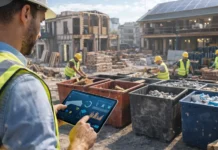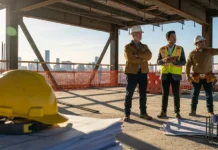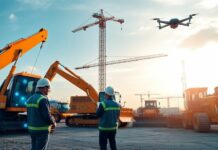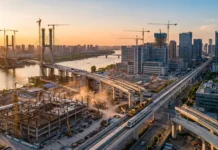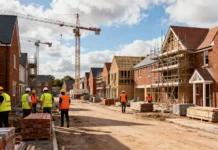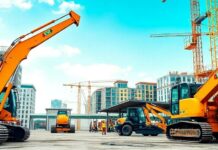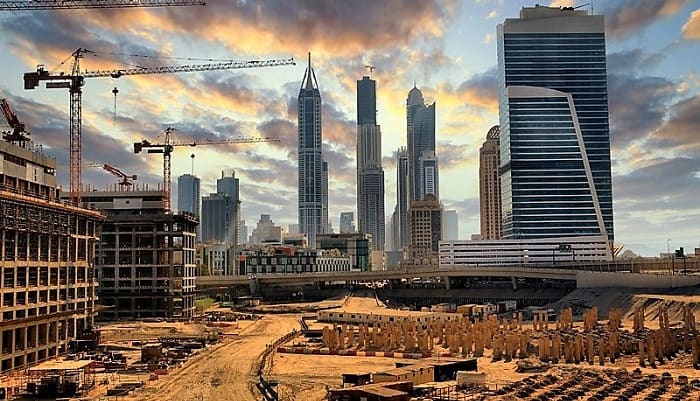The coronavirus outbreak has dealt a harsh blow to the operations of many businesses and industries in the U.S., but the construction industry doesn’t appear to be among them.
The Trump administration on Monday extended its social distancing guidelines until April 30, and numerous states have issued stay-at-home or shelter-in-place orders, effectively shuttering all businesses deemed non-essential.
But while these measures have resulted in the closure of restaurants, bars and other leisure activities, construction work has continued in many parts of the country.
For example, in California – the first state to issue a statewide shelter-in-place order – workers involved with construction, operation, inspection and maintenance of “construction sites and construction projects (including housing construction) [and] critical or strategic infrastructure” have been labeled essential.
Likewise, Washington, D.C., deemed “construction and building trades” as essential, but rolled out an additional set of guidelines for construction sites. Contractors and companies must provide soap and running water or hand sanitizer at all job sites, workers must engage in social distancing and abide by the large gathering ban (no more than 10 people in an enclosed space).
The guidelines also advise that personal protective equipment (PPE) “be preserved and used only when necessary.” Construction workers often use PPE such as N95 masks when working at hazardous sites. N95 are one of the products that are critical for health professionals to have when treating COVID-19 patients. In recent weeks, Vice President Pence, who’s leading the White House’s coronavirus task force, asked construction companies to stop ordering N95s and to donate what they could to their local hospitals.
D.C.’s neighbors, Maryland and Virginia, have similar stay-at-home orders in effect, but didn’t explicitly label construction work as either essential or non-essential.
Boston, on the other hand, suspended all regular work at construction sites two weeks ago, allowing only for emergency work approved by the city.
In New York, the epicenter of the virus in the U.S., construction deemed nonessential was halted; bridges, roads, transit facilities, utilities, hospitals, affordable housing, and homeless shelters were all categorized as essential.
Along the U.S.’s southern border, construction of the border wall has continued to move forward. Arizona, where the Trump administration recently announced it would be building over 90 miles of additional barrier, has almost 1,300 confirmed cases of COVID-19 and at least two dozen related deaths, according to the New York Times.
Arizona Gov. Doug Ducey (R) on Tuesday issued a stay-at-home order for Arizonans, but labeled construction work and necessary work done by the federal government as essential.
North America’s Building Trades Unions (NABTU), one of the country’s largest labor federations, came out in support of categorizing construction workers as essential.
“It is vital to sustain construction and maintenance on the sixteen critical physical and virtual infrastructure sectors identified by the Department of Homeland Security, as well as projects of regional and national significance,” NABTU president Sean McGarvey said.
“We support, and are providing guidance for, recommended health and safety job site precautions for construction workers, especially those building more hospital capacity in areas hardest hit by COVID-19,” he continued. “Pandemic or no pandemic, the health and safety of our members is always our number one priority on and off a job site.”



